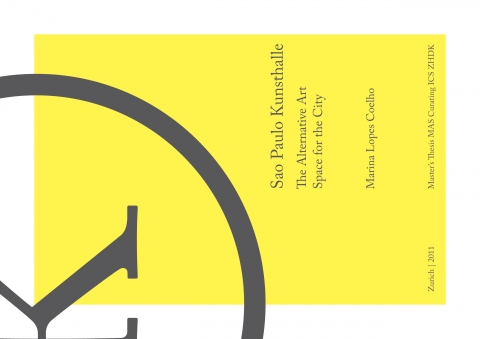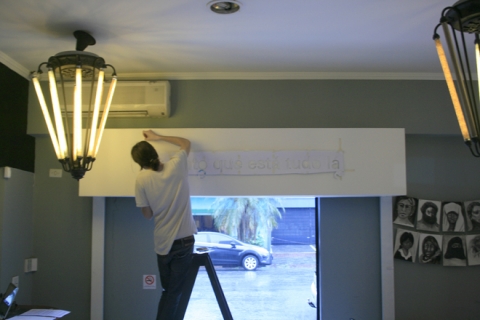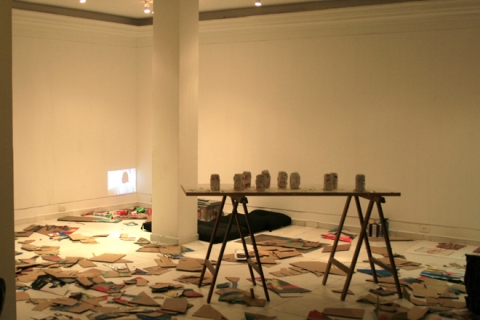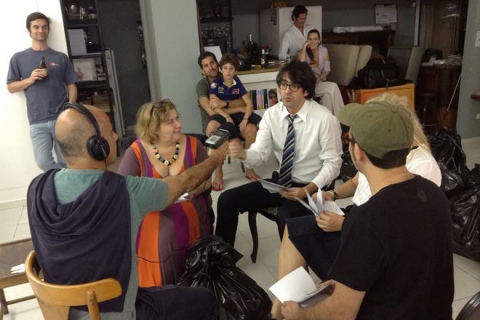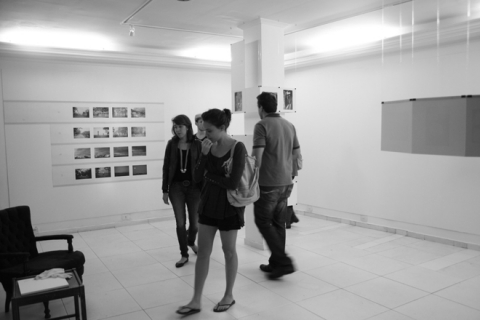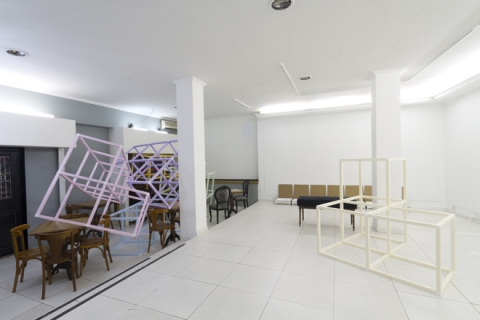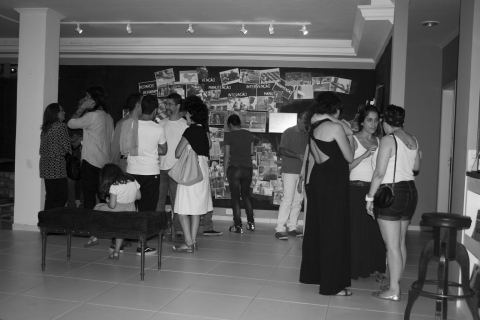curating.org
Master Project
Marina Lopes Coelho
Kunsthalle Sao Paulo: An Alternative Art Space for the City
1 September 2012
KUNSTHALLE São Paulo, Rua dos Pinheiros, 411 Pinheiros – 05422-010 São Paulo – SP – Brazil
Andreas Marti, Flurin Bisig, Otavio Cury, Renata Veloso, Tommy Støckel, Tita Dreux, Zoe Gruni and many more
All started with a MAS research, which was later transformed into a new space in Sao Paulo: KUNSTHALLE Sao Paulo, an ongoing project.
Considering the art scene in Sao Paulo I realized the lack of a more progressive kind of institution, which opens space for emerging artists to express their ideas and to show their works to the public, and to function as a meeting point for contemporary artists, curators, critics, and the public, in the city; an institution that breaks with the limited discourse of the art work as a mere object, and embraces the contemporary art practices that employ dialogue and participation on context-responsive and process-based works, rather than objects for passive consumption; a place whose program goes beyond exhibition set up, and includes more participative practices and discursive events, such as talks, screenings, concerts, lectures, symposia, debates and workshops, bringing together artists and audience, in a less formal and hierarchical atmosphere; a place where most of the activities are free of charge and everyone is welcomed to join.
With this in mind, the thesis analyzes the nature of the art institution and its development within art history. I investigate the emergence of the art museum as a public institution in Europe and North America and its functioning politics. I also analyze the advent of Institutional Critique as a response those politics, and also how artists created ways to make themselves heard by establishing the, so called, alternative art spaces.
Further on, I scrutinize the institutionalization of Institutional Critique by curators and museum directors, who working from inside art institutions tried to change those politics and created what was named New Institutionalism. In the last chapter of this theoretical survey, I examine the most recent theories of institutional criticism from within the institutions, named by Irit Rogoff, Criticality, and also the tendency of artists and curators towards Self-Organization, as a creative form of Institutional Critique, and how these practices generated different relationships between artists, curators, and audience. I also address a shift occurred on the curatorial practice towards mediation, and analyze some projects related to what was termed Educational Turn.

